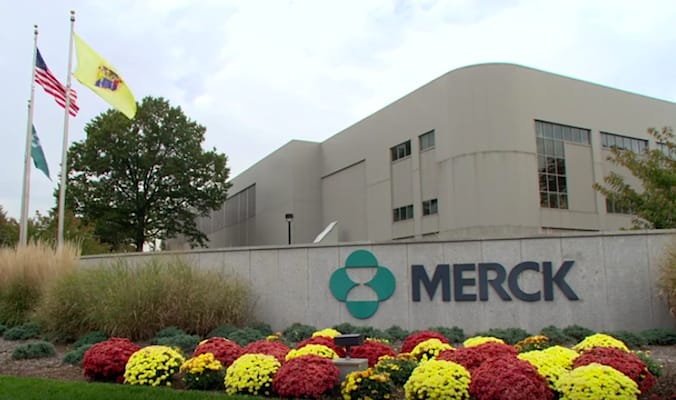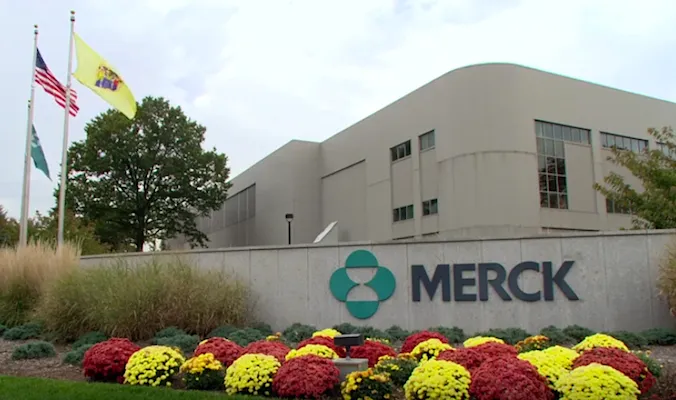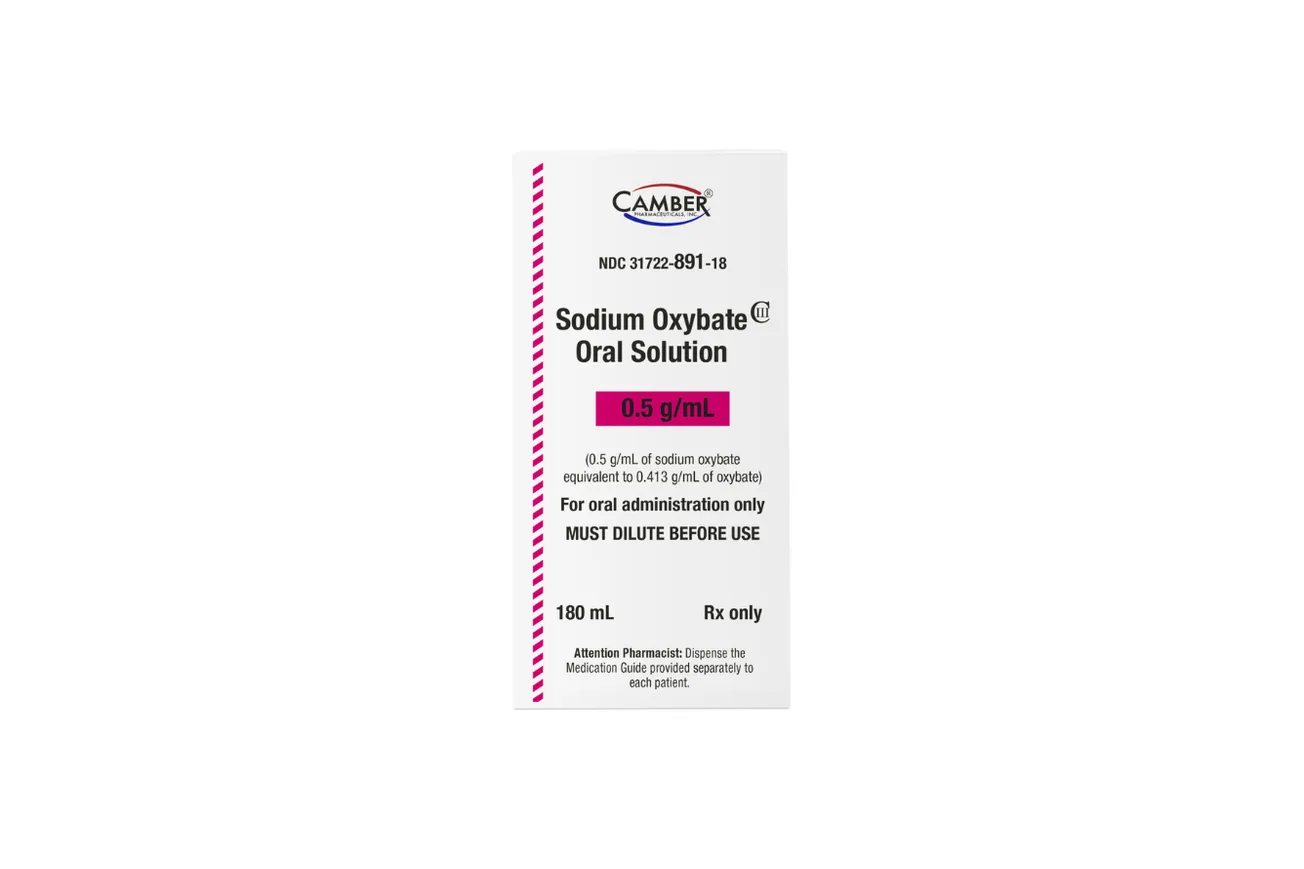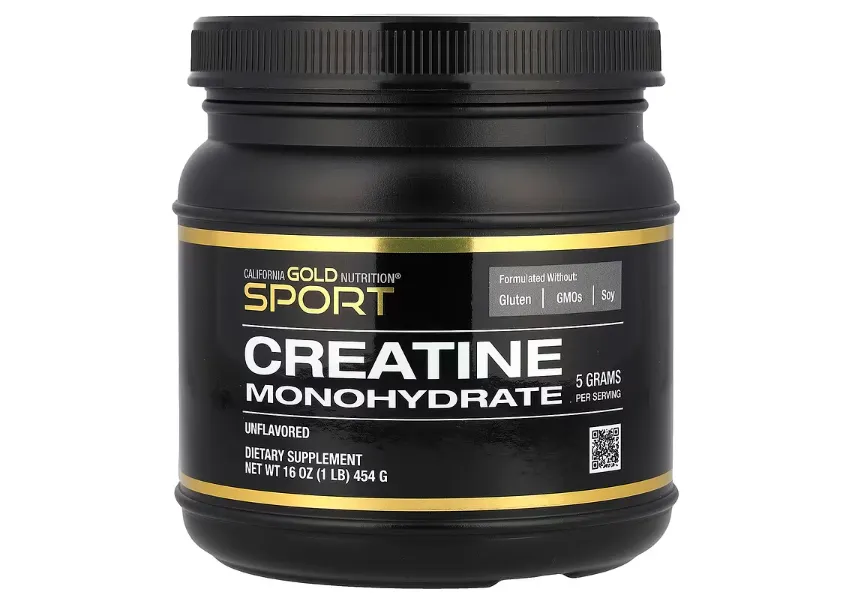KENILWORTH, N.J. — Merck and NGM Biopharmaceuticals, Inc. (NGM) Wednesday announced that Merck has exercised its option to extend the research phase of the companies’ broad, strategic collaboration for an additional two-year period from March 2020 to March 2022. The collaboration, originally announced in February 2015, is focused on discovering, developing and commercializing novel biologic therapeutics across a wide range of therapeutic areas. Under the terms of the original agreement, Merck had the option to extend the initial five-year research and early development phase of the collaboration for an additional two-year period and retains one additional two-year extension option that is exercisable in 2021.

“We are pleased that Merck has extended its collaboration with NGM, ensuring that the important work we are doing together to discover and develop novel medicines across a range of therapeutic areas and high unmet needs will continue,” said Dr. David Woodhouse, chief executive officer of NGM. “The deep resources and scientific autonomy provided by this collaboration have enabled NGM to amplify the output of our powerful discovery engine and maximize our ambitious research and development goals. Together, we have progressed several potential first-in-class drug candidates into clinical development, including NGM313, now known as MK-3655, and we look forward to sustaining this productivity on behalf of patients.”
“Merck and NGM scientists have established a strong collaboration based on our mutual commitment to scientific excellence and the pursuit of novel meaningful therapeutics for the treatment of disease,” said Dr. Joe Miletich, senior vice president, preclinical and early development, Merck Research Laboratories. “We look forward to continuing this productive collaboration.”
During the two-year extension period, Merck will continue to fund NGM’s research and development efforts at similar levels to the original collaboration terms and, in lieu of the $20 million extension fee payable to NGM, Merck will make additional payments totaling up to $20 million in support of NGM’s research and development activities during the two-year extension period in 2021 and 2022.
As part of the collaboration, the companies previously announced in January 2019 that Merck exercised its option to license NGM313, an investigational monoclonal antibody agonist of the β-Klotho/FGFR1c receptor complex for the treatment of nonalcoholic steatohepatitis (NASH) discovered by NGM. Merck’s one-time option to license NGM313 (now renamed MK-3655) was triggered by NGM’s completion of a proof-of-concept clinical study of NGM313. Merck intends to advance MK-3655 into a Phase 2b study to evaluate the effect of MK-3655 on liver histology and glucose control in NASH patients with or without diabetes.
NGM’s fibroblast growth factor 19 (FGF19) program, including its lead clinical asset NGM282, currently in Phase 2 studies for the treatment of NASH, is excluded from the agreement and remains wholly owned by NGM.
Merck and NGM also announced today that Merck will terminate its license to NGM’s growth differentiation factor 15 (GDF15) receptor agonist program, which is being developed for the treatment of obesity, effective May 31, 2019. As part of the original collaboration agreement, Merck received an exclusive worldwide license to NGM’s GDF15 analogs, including NGM386 and NGM395, protein variants of GDF15 with potential for once-daily and once-weekly or less frequent dosing, respectively. In 2018, Merck completed dosing of a Phase 1 multiple ascending dose clinical trial evaluating NGM386 in otherwise healthy overweight/obese subjects. Preliminary data from this study indicate that while NGM386 was generally well tolerated, treatment with the drug for 28 days did not result in body weight loss relative to placebo.
Upon license termination, Merck will grant to NGM an exclusive license under Merck’s intellectual property related to the GDF15 receptor agonist program for further development and commercialization of products, subject to the payment of a low single digit royalty on any future product sales back to Merck. Merck’s decision to terminate the GDF15 program, a right stipulated in the agreement, does not impact the remainder of the collaboration arrangement.
“We continue to believe that the biology of GDF15 and its cognate receptor, GFRAL, can play an important role in human disease with potential effects on lipolysis and energy expenditure in metabolic disease states. Upon transition of the programs back to NGM, we will conduct an analysis of the clinical data and make a decision about whether to pursue further development of NGM386 and/or NGM395,” said Dr. Woodhouse.
MARCH 20, 2019
Collaboration will Continue to Focus on Discovery and Development of Novel Biologic Therapeutics Across a Range of Therapeutic Areas
Merck to Return GDF15 Receptor Agonist Program to NGM
KENILWORTH, N.J., and SOUTH SAN FRANCISCO, Calif.–(BUSINESS WIRE)– Merck (NYSE:MRK), known as MSD outside the United States and Canada, and NGM Biopharmaceuticals, Inc. (NGM) today announced that Merck has exercised its option to extend the research phase of the companies’ broad, strategic collaboration for an additional two-year period from March 2020 to March 2022. The collaboration, originally announced in February 2015, is focused on discovering, developing and commercializing novel biologic therapeutics across a wide range of therapeutic areas. Under the terms of the original agreement, Merck had the option to extend the initial five-year research and early development phase of the collaboration for an additional two-year period and retains one additional two-year extension option that is exercisable in 2021.
This press release features multimedia. View the full release here: https://www.businesswire.com/news/home/20190320005089/en/
“We are pleased that Merck has extended its collaboration with NGM, ensuring that the important work we are doing together to discover and develop novel medicines across a range of therapeutic areas and high unmet needs will continue,” said Dr. David Woodhouse, chief executive officer of NGM. “The deep resources and scientific autonomy provided by this collaboration have enabled NGM to amplify the output of our powerful discovery engine and maximize our ambitious research and development goals. Together, we have progressed several potential first-in-class drug candidates into clinical development, including NGM313, now known as MK-3655, and we look forward to sustaining this productivity on behalf of patients.”
“Merck and NGM scientists have established a strong collaboration based on our mutual commitment to scientific excellence and the pursuit of novel meaningful therapeutics for the treatment of disease,” said Dr. Joe Miletich, senior vice president, preclinical and early development, Merck Research Laboratories. “We look forward to continuing this productive collaboration.”
During the two-year extension period, Merck will continue to fund NGM’s research and development efforts at similar levels to the original collaboration terms and, in lieu of the $20 million extension fee payable to NGM, Merck will make additional payments totaling up to $20 million in support of NGM’s research and development activities during the two-year extension period in 2021 and 2022.
As part of the collaboration, the companies previously announced in January 2019 that Merck exercised its option to license NGM313, an investigational monoclonal antibody agonist of the β-Klotho/FGFR1c receptor complex for the treatment of nonalcoholic steatohepatitis (NASH) discovered by NGM. Merck’s one-time option to license NGM313 (now renamed MK-3655) was triggered by NGM’s completion of a proof-of-concept clinical study of NGM313. Merck intends to advance MK-3655 into a Phase 2b study to evaluate the effect of MK-3655 on liver histology and glucose control in NASH patients with or without diabetes.
NGM’s fibroblast growth factor 19 (FGF19) program, including its lead clinical asset NGM282, currently in Phase 2 studies for the treatment of NASH, is excluded from the agreement and remains wholly owned by NGM.
Merck and NGM also announced today that Merck will terminate its license to NGM’s growth differentiation factor 15 (GDF15) receptor agonist program, which is being developed for the treatment of obesity, effective May 31, 2019. As part of the original collaboration agreement, Merck received an exclusive worldwide license to NGM’s GDF15 analogs, including NGM386 and NGM395, protein variants of GDF15 with potential for once-daily and once-weekly or less frequent dosing, respectively. In 2018, Merck completed dosing of a Phase 1 multiple ascending dose clinical trial evaluating NGM386 in otherwise healthy overweight/obese subjects. Preliminary data from this study indicate that while NGM386 was generally well tolerated, treatment with the drug for 28 days did not result in body weight loss relative to placebo.
Upon license termination, Merck will grant to NGM an exclusive license under Merck’s intellectual property related to the GDF15 receptor agonist program for further development and commercialization of products, subject to the payment of a low single digit royalty on any future product sales back to Merck. Merck’s decision to terminate the GDF15 program, a right stipulated in the agreement, does not impact the remainder of the collaboration arrangement.
“We continue to believe that the biology of GDF15 and its cognate receptor, GFRAL, can play an important role in human disease with potential effects on lipolysis and energy expenditure in metabolic disease states. Upon transition of the programs back to NGM, we will conduct an analysis of the clinical data and make a decision about whether to pursue further development of NGM386 and/or NGM395,” said Dr. Woodhouse.








